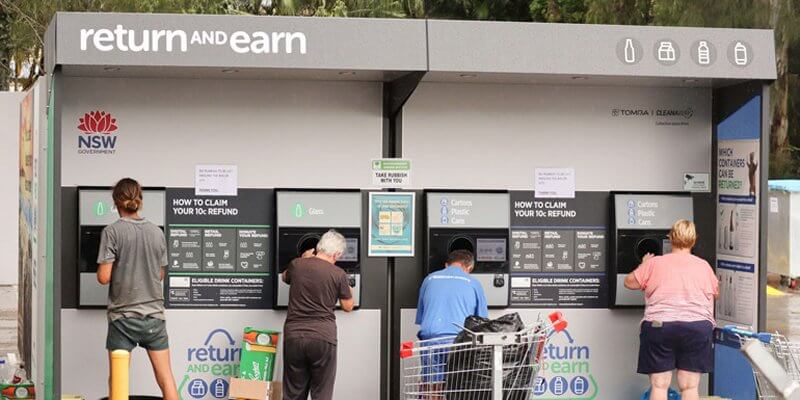Community group action on climate change and sustainability
The NSW climate has already changed, and further change will happen. But it’s not too late to prevent the worst impacts of climate change. By reducing our emissions now, we can still reduce the level of climate change that we can expect in the future.
Community groups can contribute to this goal by working on community sustainability projects and making small changes in the group’s activities and processes to reduce carbon emissions and reduce negative impacts on the environment. There is also the opportunity to form a community group to promote sustainability and emissions reduction activities. Community groups can also share information within a community, to help support and encourage other sustainability efforts.
For project ideas, take a look at the advice on how local councils and authorities can adapt and reduce their impact on climate change. Support may be available for such work, for example the Powering Communities Program provides $10.2 million in grants to not-for-profit community organisations to help them to reduce their energy use, improve energy productivity and reduce emissions.
Community groups can think about how to save energy and money, particularly in the premises and appliances they use.
The Australian Government’s energy.gov.au website has information on energy efficiency and sustainability, and you can also find out about rebates available to help you improve your sustainability.
Many other resources are available to help you consider and reduce your energy use, such as:
- The NSW government's energy saver website.
- A Greenhouse around the Corner – a video series about 6 community and education centres that implement energy-efficiency solutions to reduce cost and make the buildings more comfortable
- the 3E – Enable Energy Efficiency program has information on energy efficiency information in different languages, including case studies and videos. The site was developed by the Community Migrant Resource Centre and can help culturally and linguistically diverse businesses and communities identify opportunities to reduce energy costs.
- the Save it for the Game program educates Victorian sports club members to dramatically reduce their club’s energy bills. The program was developed by Victoria’s South East Councils Climate Change Alliance (SECCCA) and has helped clubs save an average of 26% off their energy bills. You can read case studies on the SECCCA website.
- Catholic Earthcare Australia, which publishes environmental information for places of worship on its website.
Community groups and members often travel for meetings or events. You can take advantage of the numbers in your group to reduce private vehicle use. Consider carpooling, which is especially useful if an event such as sport is held a long distance away. You can also consider active forms of transport such as walking or biking, which you can do as a group.
For meetings, you can use virtual meetings for some get-togethers. You can also support ideas that promote change among the community, such as walk-to-work or walking-school-bus campaigns.
Food and packaging waste is a big problem that we can all help reduce. Sharing food is a large part of community groups, and therefore it is important to have sustainable processes in place. Ideas to reduce waste include:
- using reusable cutlery and plates, which can be purchased cheaply from charity shops or borrowed from stuff libraries – consider using biodegradable options if reusable items aren’t available and make sure to avoid single-use plastic
- purchasing food items such as tea and coffee in bulk – this will save your organisation money and reduce packaging waste.
Related Information
NSW Energy Saver - NSW Government
Your Home - Australian Government
Return and Earn - NSW Government
Energy Switch - NSW Government
Green Power - Australian Government
Green Vehicle Guide - Australian Government
NSW Transport electric vehicles guide - NSW government
Return and Earn - NSW Government
Food organics and garden organics - NSW EPA
Case studies

Santos Organics is redefining what a retail food business can be. As a not-for-profit organic food retailer, community hub and incubator for First Nations enterprises, Santos Organics strengthens local food security, supports local food producers, and activates rapid, community-led resilience during climate shocks.

WinZero is a volunteer-led climate action backbone organisation helping the Southern Highlands community to reduce emissions, lower energy bills and move towards a fairer, net-zero future. Through its Virtual Energy Network and regional partnerships, WinZero is proving that when communities lead, adaptation accelerates.

Emerging from the Highlands Homegrown Economy: Opportunity Mapping and Collaboration Workshop, the Southern Highlands Food Logistics Hub is uniting local growers to overcome climate volatility and market fragmentation. By pooling supply and sharing logistics, it is building a reliable, regenerative food system for NSW’s changing conditions.
